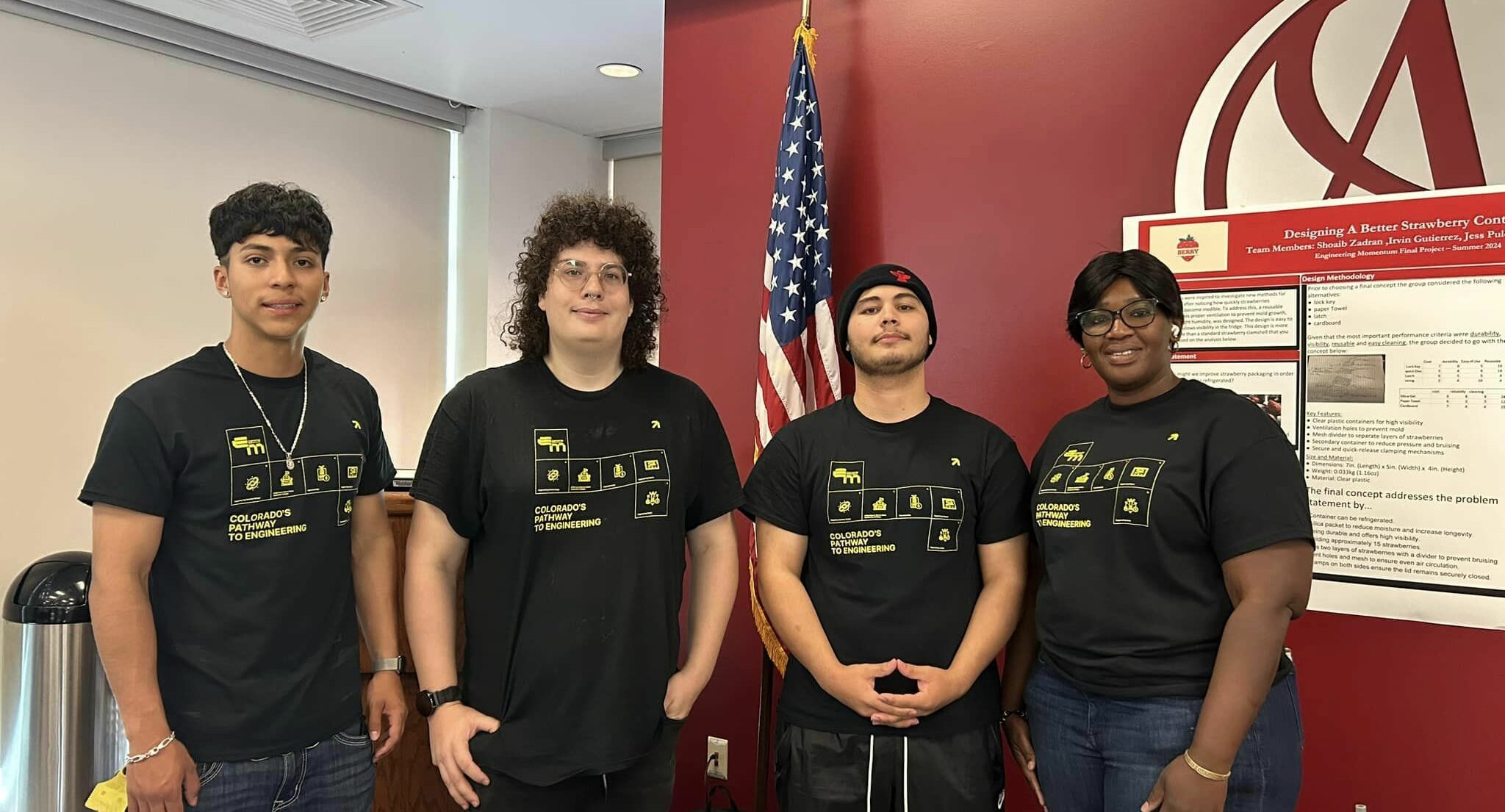
Pikes Peak State College (PPSC) will receive $300,000 in state dollars to continue growing its successful cybersecurity program thanks to recent approval from the Colorado General Assembly.
The funding builds on Senate Bill 18-086, which set aside $1.5 million to develop the college’s cybersecurity training program in partnership with local organizations.
PPSC president Dr. Lance Bolton said state dollars have been instrumental to the program’s progress. In the past five years, PPSC has doubled course enrollment, awarded 82 credentials, and doled out $30,000 in scholarships for cyber students.
“We have dramatically grown the program, and a key part around pipeline-building is that approximately 10 percent of our students are Concurrent Enrollment students,” he said. “We’re giving opportunities to high school students to engage in a career that they can really build on.”
We’re giving opportunities to high school students to engage in a career that they can really build on.
‘Real-World Experience’
In his year with the college, Mike Krakow has watched cybersecurity offerings take off. Thanks to state support, PPSC upgraded classroom technology and recruited top-notch faculty with years of experience in the field, the program director said.
The college has also focused on connecting students to in-demand jobs. Courses prepare students for industry certification exams, and PPSC has teamed with local organizations to offer work-based learning opportunities.
“We sent 24 students to the National Cybersecurity Center, and they participated in Project Pisces, which partners with smaller companies here that wouldn’t necessarily have a cyber position,” he explained. “The students go through a whole day of training, and they look at logs and try to identify issues and report them. It gives them that real-world experience.”
That career-connected approach has resulted in real gains for students. PPSC estimates that cybersecurity completers have received $17 million in earnings over the past five years with an average starting salary of $65,000.
Today, about 670 students are enrolled in cybersecurity and computer science, Krakow said. He’s been impressed by their focus and dedication.
“They’re inviting speakers to come in and are studying for certifications,” he said. “These students are invested and take this seriously.”
From Passion to Career
One of those students is Caden Rothzeid, who heads up the college’s Cyber Club. As a young person, Rothzeid enjoyed tinkering with computers and taught himself programming. His curiosity led him to PPSC.
“I thought, ‘I really should learn this, I spend so much time on the computer!’” he said. “Then I got into the cybersecurity aspect. People can hack apps—how do you prevent that?”
Rothzeid is in his second semester working toward his computer science degree and has been especially interested in his security courses.
“Programming is becoming even more important for security professionals. All you’re doing every day is using software. You should know how that software works,” he explained.
The Cyber Club gives students the chance to dig into these trends and learn from one another, Rothzeid said. The group recently participated in the National Cyber League competition, where they collaborated with University of Colorado Colorado Springs students to solve complex coding and security challenges.
In the coming years, Rothzeid hopes to leverage this practical experience to become a security operations center analyst, decoding and responding to cyber threats. He credits his instructors for nurturing his passion into a future career.
“The faculty really do respond quickly,” he said. “If you have an issue, they want to help you as much as they can.”


